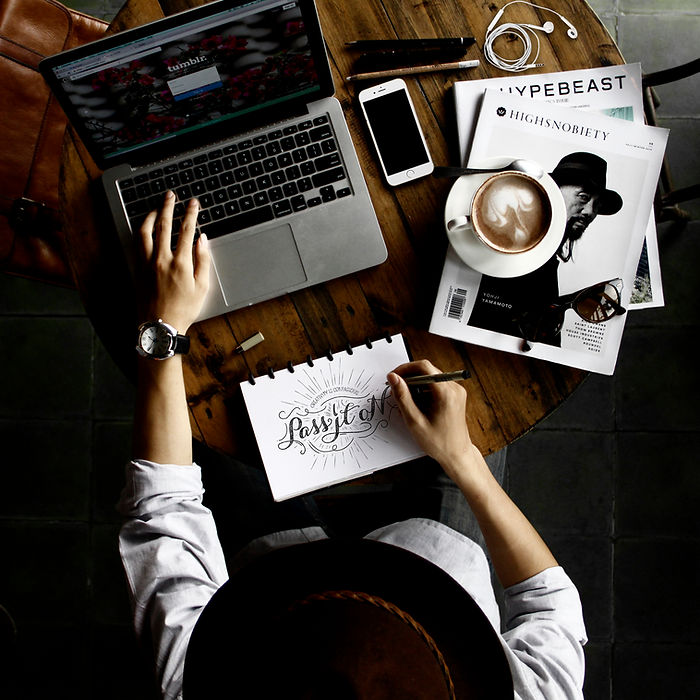
The Muse Art Gallery
mobile app design
OVERVIEW
Bringing Art Closer: A mobile app for The Muse Art Gallery
Project Goal: Craft a mobile app for the art gallery that immerses busy adults in the world of art, seamlessly guiding them from artist discovery to ticket purchase.
Target Audience: Imagine the art enthusiast on the go: a professional with limited free time, yet a deep appreciation for artistic expression. They crave convenient access to information and a frictionless path to experience art firsthand.
Website Features:
-
Compelling Artist Showcases: Feature captivating visuals and insightful artist bios to spark curiosity and engagement.
-
Intuitive Exhibit Browsing: Facilitate exploration with clear exhibit listings, dates, and descriptions, simplifying event discovery.
-
Seamless Ticket Purchasing: Streamline the ticketing process with secure payment options and clear purchase steps, minimizing barriers to art appreciation.
Outcome: This app aims to bridge the gap between busy lives and the vibrant world of art, turning casual admirers into engaged gallery-goers. By prioritizing convenience, clarity, and beauty, we hope to ignite a passion for art in every visitor.
ROLE
User Research, Wireframing, Interaction, Visual design, Prototyping & Testing
DURATION
September - October 2023
User Research: Pain Points

Time
Working adults are too
busy to spend time
researching Artists to
patronize

Accessibility
Platforms for learning
about Artists are not
equipped with assistive
technologies

Money
Busy adults want a
convenient way to
purchase tickets to an
Artist’s exhibit


Methods
-
Conducted online surveys with art enthusiasts
-
Interviewed art gallery visitors
-
Analyzed user feedback from existing online art galleries

Findings
-
Users want high-quality images and detailed descriptions of the artwork.
-
Users want to learn about the context and history of the artworks.
-
Users want a mobile app that is easy to navigate and use.
-
Users want a mobile app that is accessible to people with disabilities.

Recommendations
-
Create a diverse collection of artworks.
-
Use high-quality images and provide detailed descriptions of the artworks.
-
Write engaging stories about the artworks and their history.
-
Make the website easy to navigate and use.
User Research: Summary
Goal: To understand the needs and expectations of potential users of The Muse Art Gallery mobile app.
Persona:
Marie Johnson
Problem statement:
Marie, a passionate art history enthusiast juggling long hours as a doctor, yearns to explore the vibrant world of galleries but struggles with her hectic schedule. Deciphering complex schedules, battling inconsistent ticketing platforms, and worrying about closed doors make every art adventure a logistical nightmare. She dreams of an app that curates hidden gems, simplifies ticket buying, and seamlessly integrates art excursions into her busy life. Marie envisions a trusted art concierge, her gateway to enriching encounters with the art she loves.



User Journey Map
I want to make the app easy for Marie to navigate to find artists she likes, buy the
tickets and add the event to her calendar.
Paper Wireframes
My initial idea was to make the largest buttons be for the Artists, Gallery Events, Artist Shows and Contact Info.


Digital Wireframes
While setting these buttons up, I was constantly thinking about all the
additional items that the app could have for the User. For example, not only have Biographies about the
Artists, but also a way to buy tickets to their shows.
Low-fidelity Prototype

This Prototype shows the User Flow from the Home screen through the Ticket Purchase.


Review
Users want to review Artists before
Booking their Show
Navigate
Users want easy navigation

Personalize
Users want to personalize their
accounts
Unclutter
The “circle +” button was unnecessary
and confusing

Read & Watch
Users want to read a little bit about
the artist AND watch one video
Usability Study: Findings
Round 1
Round 2
Stickersheet / Branding
This includes the fonts, colors, icons and branding to use for the project.

Mockups
Early designs allowed users to click on event logos that the gallery may be hosting, but after usability
studies, I removed those, as the purpose of the app is to aid the user in researching the artists. The gallery events are a secondary option.

Mockups
The original design was set for two videos to showcase the artist’s talent. However, during usability study and design iterations, it was determined more important to include more written detail in the biography, so there was less space for two videos. One would suffice.

Mockup: All Screens

Hi-fidelity prototype showcasing User flow
My hi-fi prototype followed the same user flow as the lo-fi prototype and included the design changes made after the usability study.



Alt text
Provided access to users who are vision impaired through adding alt text to
images for screen readers

Icons
Used icons to help make
navigation easier.

Imagery
Used detailed imagery for the Artist’s exhibits to make it convenient for the
Users to select the exhibit they want
to explore.
Accessibility Considerations

Impact
The app makes users feel like The Muse Art Gallery thinks about how to meet their needs.
One quote from peer feedback:
“The app made it convenient for me to learn about the Artist before I purchased my ticket to their exhibit.”

What I Learned
While designing the Muse Gallery Artist Bio app, I learned that the first few ideas for the app are only the beginning of the process. Usability studies and peer feedback influenced
each iteration of the app’s designs.
Takeaways

Follow-up
Conduct another round of usability studies to validate whether the pain points users have experienced have been
effectively addressed.

Identify
Conduct more user research to determine any new areas
of need.




